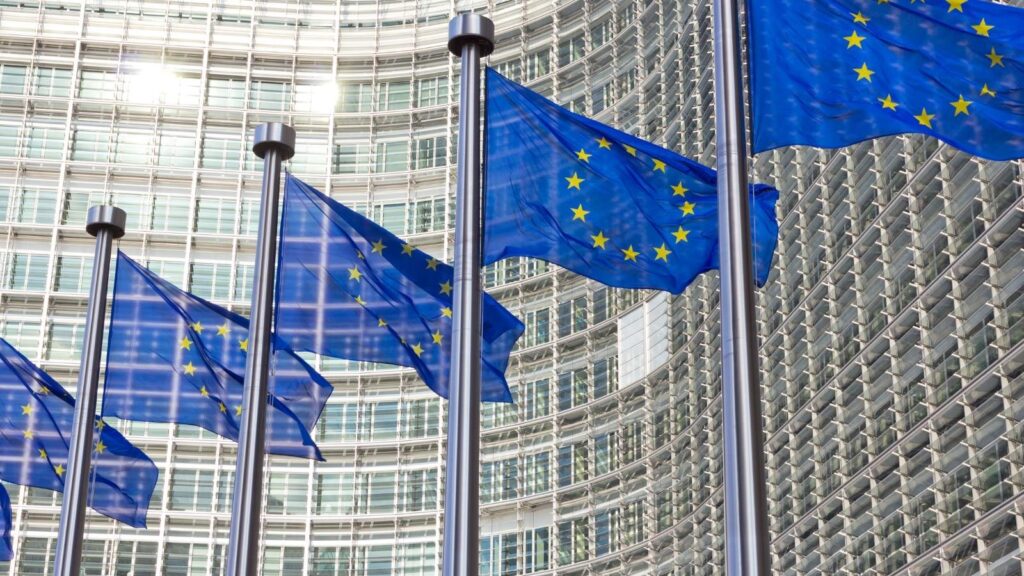- About Us
- People
- Practice Areas
Our Services
Partners and Operating Partners undertake either roles or assignments, working alone or in teams as appropriate. They have the backup of the extensive network that the gunnercooke Operating Sphere provides, delivering skills, services, solutions across a wide range of verticals addressing a multitude of challenges and opportunities
- News & Insights
- Get in touch

In an era of increasing global interdependence, the European Union (EU) has implemented a robust regulatory framework to address competitive distortions caused by foreign subsidies.
The EU Foreign Subsidies Regulation (FSR), which entered into force on January 12, 2023, represents a significant enhancement to the EU’s regulatory arsenal. By empowering the European Commission to investigate financial contributions from non-EU countries to businesses operating within the EU, the FSR aims to safeguard the integrity of the EU internal market and foster fair competition.
In this article, we delve into the core objectives of the FSR, its scope, compliance obligations, and the key steps businesses must take to ensure regulatory alignment.
The Rationale Behind the FSR
The EU has long regulated domestic state aid under strict rules, ensuring that member states do not grant unfair advantages to domestic companies. However, foreign subsidies—financial contributions provided by non-EU countries—have historically operated outside the EU’s regulatory purview. The FSR closes this gap by enabling the European Commission to monitor, investigate, and address the effects of foreign subsidies on the EU market.
The regulation’s primary objective is to ensure that competition within the EU is not skewed by companies receiving undue support from non-EU governments. Whether in the form of direct grants, tax exemptions, or preferential access to resources, foreign subsidies can distort competition, particularly in high-value sectors such as technology, infrastructure, and public services.
Scope of the FSR
The FSR applies to foreign financial contributions that provide a competitive advantage to businesses operating within the EU. These contributions may include:
- Direct financial support: Cash grants, loans, or equity injections.
- Debt relief: Forgiveness of loans, tax liabilities, or payment obligations.
- Preferential access: Reduced fees for infrastructure, land use, or natural resources.
- Regulatory benefits: Exclusive licenses, guarantees, or exemptions.
The regulation focuses on three critical areas where foreign subsidies could distort competition:
- Mergers and Acquisitions (M&A):
- Notification is required when the transaction value exceeds €500 million and the parties have received foreign financial contributions of at least €50 million in the preceding three years.
- Public Procurement:
- Bidders must notify the Commission for procurement contracts valued at €250 million or more, if they have received foreign financial contributions of at least €4 million per non-EU country in the past three years.
- General Market Operations:
- The Commission can investigate distortive foreign subsidies affecting the EU market, even outside M&A and procurement processes.
Notification Requirements and Obligations
Businesses engaging in M&A transactions or public procurement bids must adhere to strict notification requirements. Failure to notify the Commission can result in significant consequences, such as:
- Fines of up to 10% of the company’s global annual turnover.
- Suspension or prohibition of the transaction.
- Exclusion from public procurement processes.
Companies must ensure that their internal compliance teams track foreign financial contributions to avoid regulatory breaches. Early identification of potentially notifiable contributions can streamline the notification process and prevent costly delays.
Investigation and Enforcement Powers
The European Commission has been granted substantial investigative powers under the FSR, including the ability to:
- Request detailed information on financial contributions from non-EU countries.
- Conduct dawn raids at company premises.
- Interview key personnel and review relevant documents.
These powers enable the Commission to assess whether foreign subsidies have conferred an unfair advantage and to determine the appropriate course of action.
Remedies and Sanctions
If the Commission concludes that a foreign subsidy distorts the EU market, it can impose corrective measures, such as:
- Blocking M&A transactions or requiring structural remedies, such as the divestiture of certain assets.
- Repayment of financial contributions deemed to confer an unfair advantage.
- Prohibiting the subsidized entity from participating in public procurement processes.
The Commission may also accept voluntary commitments from businesses, such as behavioral remedies or pledges to reduce market impact.
Examples of FSR Investigations and Their Outcomes
The Commission has actively enforced the FSR, with several high-profile investigations highlighting its impact.
- The Commission investigated a Chinese state-owned train manufacturer for foreign subsidies in a Bulgarian public tender. The company withdrew from the tender process, ending the investigation without a decision.
- The Commission launched investigations into two Chinese bidders for a solar project in Romania. Both withdrew their tenders, leading to the closure of the cases.
- The Commission ordered dawn raids at the office of a security inspection equipment manufacturer in the Netherlands and Poland. The company challenged the raids but lost in court, and the investigation remains ongoing.
Implications for Cross-Border Operations
The FSR introduces a new dimension of regulatory scrutiny for multinational companies, particularly those with significant foreign investments or state-backed financing. Businesses must now:
- Maintain comprehensive records of foreign financial contributions.
- Incorporate FSR compliance checks into their due diligence processes for M&A deals and procurement bids.
- Monitor public announcements and guidance from the Commission to remain compliant with evolving regulatory interpretations.
Companies engaged in large-scale projects or strategic acquisitions must allocate sufficient time and resources to navigate the notification and investigation processes effectively.
Practical Steps for Compliance
To prepare for the FSR’s impact, businesses should:
- Implement Internal Monitoring Systems: Establish procedures to track foreign financial contributions.
- Conduct Preemptive Risk Assessments: Review upcoming transactions to determine whether they trigger notification thresholds.
- Engage Legal and Compliance Teams Early: Ensure key stakeholders are aware of the FSR’s requirements and have the resources to manage notifications.
- Collaborate with External Advisors: Partner with legal and tax experts to identify compliance risks and prepare notification documents.
Proactively addressing potential regulatory issues can mitigate the risk of delays, fines, or adverse Commission findings.
Potential Challenges and Criticisms
While the FSR is a crucial tool for ensuring fair competition, it has also raised concerns among businesses and policymakers:
- Increased Administrative Burden: Compliance with notification requirements may lengthen deal timelines and increase transaction costs.
- Deterrent Effect on Investment: Non-EU investors may view the FSR as an additional hurdle, potentially impacting foreign direct investment.
- Uncertainty During Implementation: As the FSR framework evolves, businesses may face uncertainties regarding interpretation and enforcement.
Despite these concerns, the FSR is widely viewed as a necessary safeguard to uphold fair market dynamics in an increasingly competitive global landscape.
Conclusion: Preparing for the Future
The EU Foreign Subsidies Regulation has introduced a comprehensive regime that affects how businesses navigate cross-border transactions and public procurement processes. Companies must now incorporate FSR compliance into their strategic planning and due diligence efforts.
To learn more or schedule a consultation, you can contact Angelo Chirulli, International Tax Partner at [email protected] or visit our profiles at gunnercooke.com or gunnercookeop.com.


